Summer in the UAE can feel like stepping into an oven every time you leave the house. For many expats, this time of year is incredibly tough. The blazing heat can make it feel like the air conditioner is your best friend, and running errands outside is something you brace yourself for. But did you know this extreme weather also increases the risk of car fires? Now, car fires aren’t the kind of thing most people think about. They’re rare, but when they do happen, they can get out of control fast, leaving you with major damage and a big safety issue.
The good news? Most of these incidents are completely preventable. With a little bit of caution and regular maintenance, you can reduce your risks and stay safe.
Contents
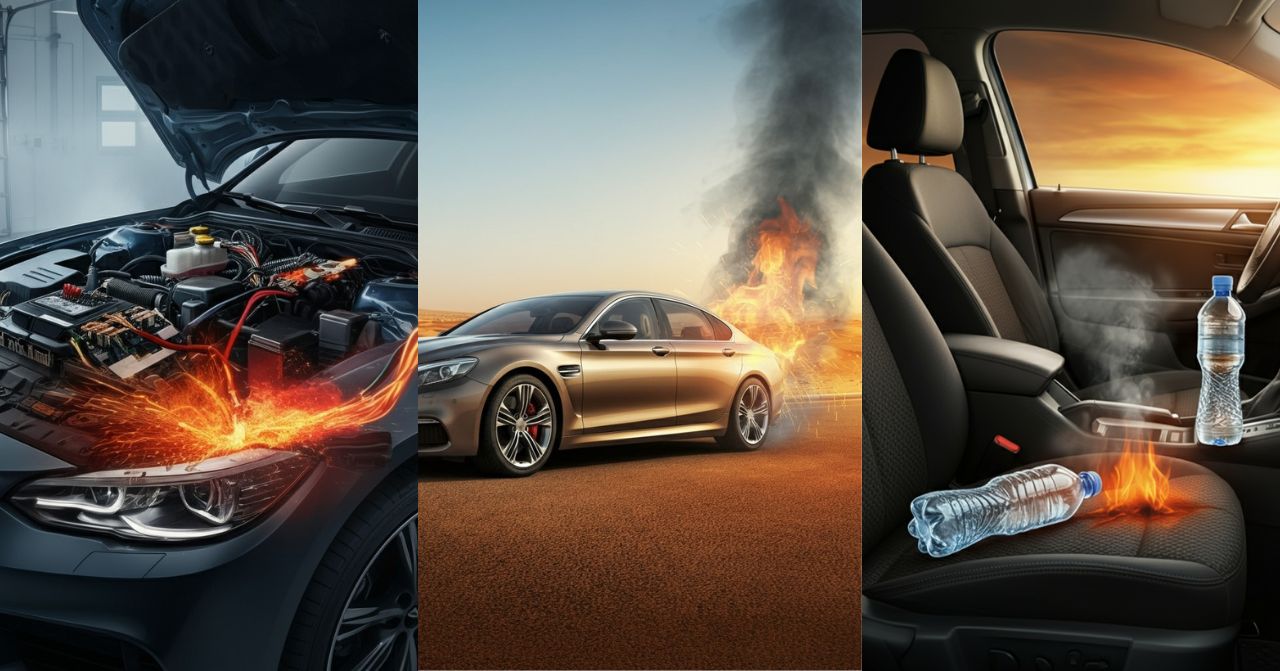
Car fires don’t just happen out of nowhere—not even in this scorching weather. There’s almost always a cause, and understanding these can help you act before it’s too late. Here’s what to watch out for:
1. Electrical Malfunctions
Electrical issues such as faulty wiring, aging components, or unapproved modifications are a leading cause of car fires. High-current systems like battery cables or power window motors can spark fires if not properly maintained or repaired.
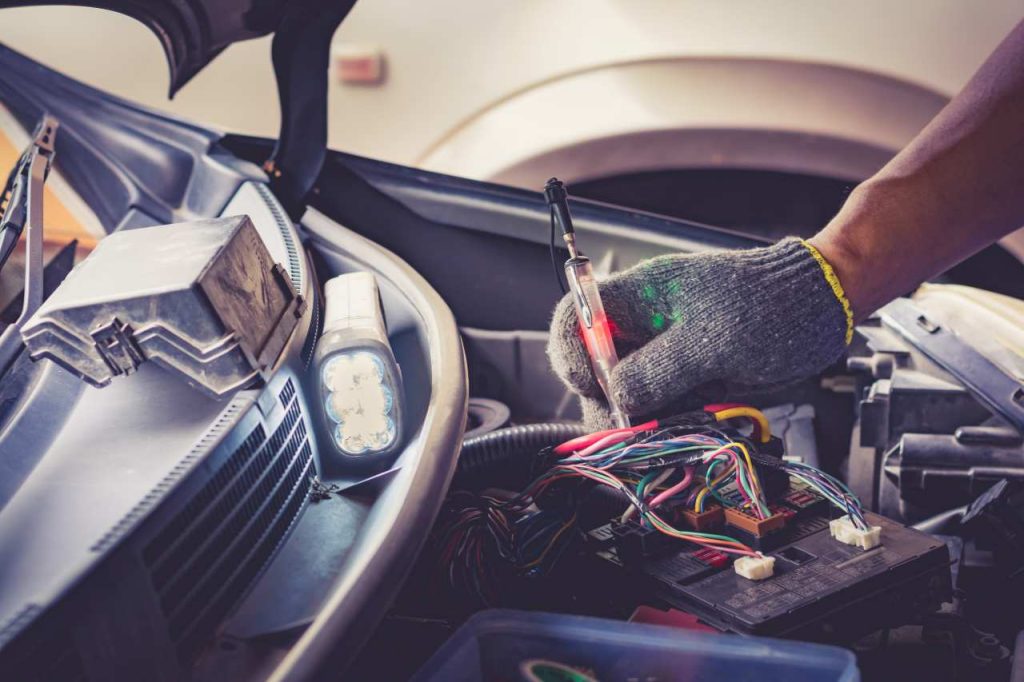
Solutions & Prevention
- Schedule a vehicle electrical inspection every 6–12 months, especially for older cars, to catch potential issues early.
- Only use licensed professionals for modifications or repairs and avoid unapproved aftermarket parts.
- Regularly check for exposed or damaged wiring in the engine bay and address issues immediately.
2. Engine Overheating
Overheating engines don’t just strain performance; they can ignite fires if coolant or other fluids overheat and spill onto hot components like the exhaust manifold.
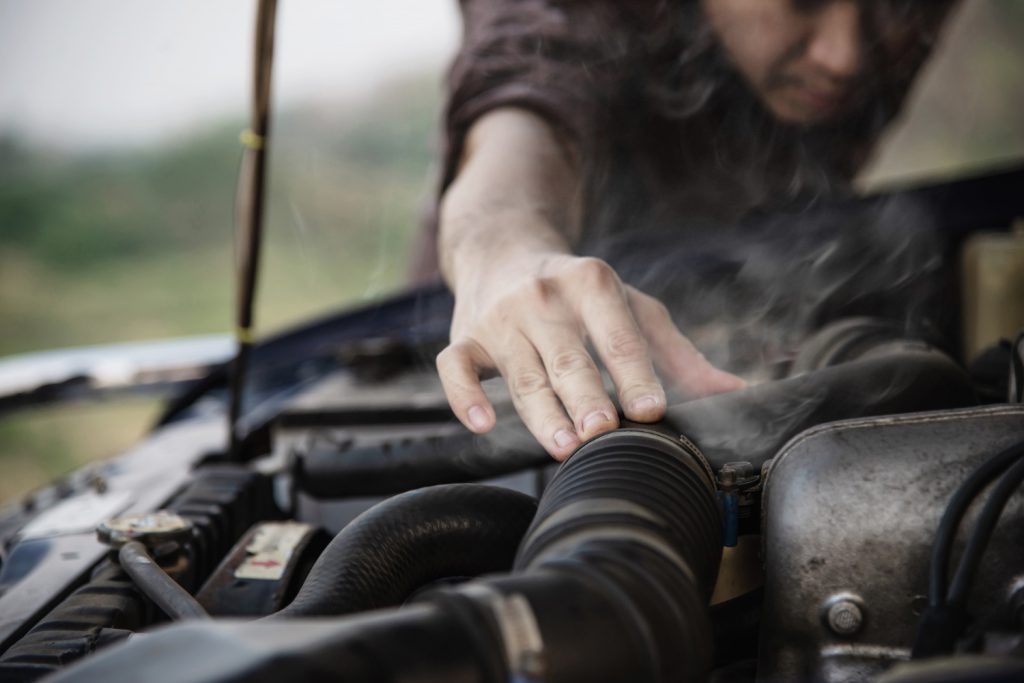
Solutions & Prevention
- Check your coolant levels monthly and top up with the recommended coolant if low.
- Keep an eye on your dashboard temperature gauge or warning lights, especially during long drives.
- If your engine overheats, pull over safely, turn off the engine, and let it cool before investigating further to prevent escalation.
3. Fuel Leaks
Fuel leaks can create a highly flammable combination when mixed with air under the hood. Even a small spark from faulty wiring or extreme heat can cause ignition.

Solutions & Prevention
- If you smell fuel while driving, pull over immediately and turn off the engine. Avoid restarting the vehicle before addressing the issue.
- Have your car inspected regularly to ensure fuel lines and connectors are in good condition.
- Never ignore the smell of fuel or visible leaks, as even small leaks can lead to dangerous situations.
4. Water Bottles Left in Hot Cars
Plastic water bottles left in direct sunlight can act like magnifying lenses, intensifying sun rays and potentially igniting the car’s interior.
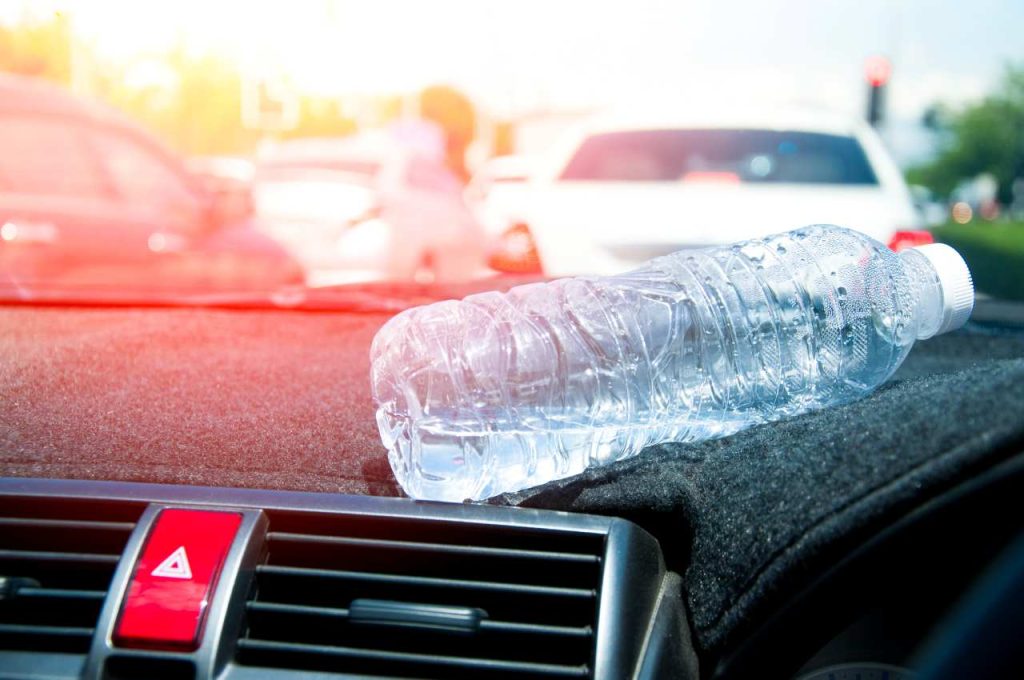
Solutions & Prevention
- Always remove plastic water bottles from your car, particularly in the summer heat.
- Store any necessary items away from direct sunlight, such as in the glove compartment or trunk.
- Use window shades to reduce the temperature inside the vehicle during hot days.
5. Neglected Maintenance
Failing to keep up with maintenance can lead to unnoticed problems like worn-out hoses, loose connections, or fluid leaks, which may eventually cause fires.
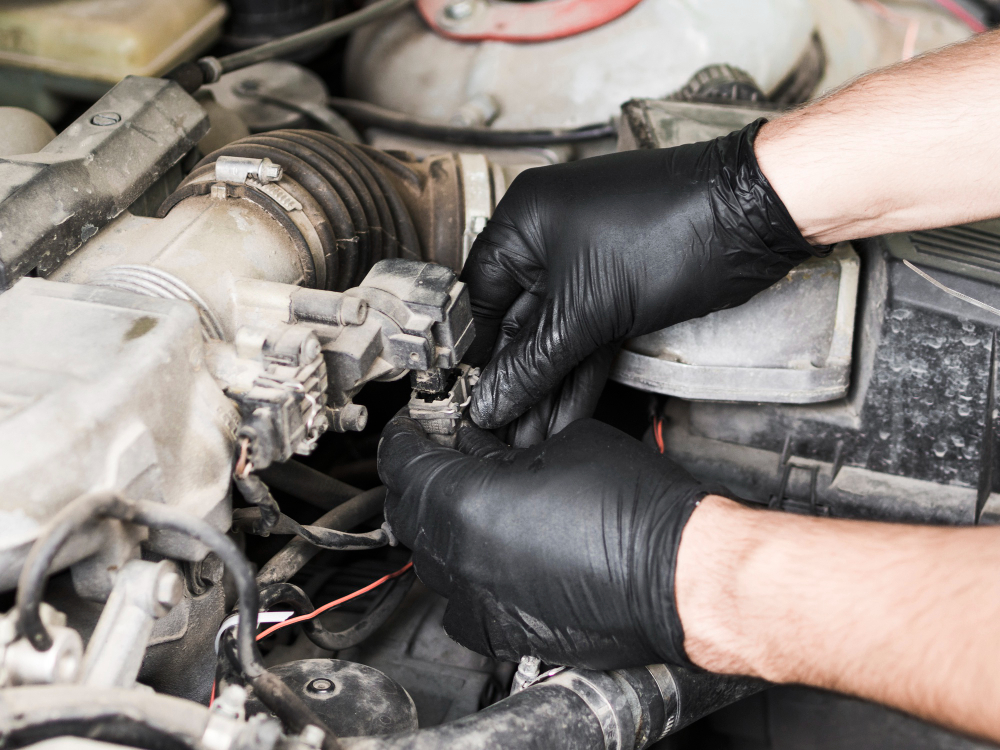
Solutions & Prevention
- Stick to your car manufacturer’s recommended maintenance schedule and book routine service checks.
- Inspect visible components, such as hoses and belts, for signs of wear or cracks during refueling stops.
- Immediately address minor issues like persistent warning lights or unusual smells—early action can prevent major problems.
6. Smoking Inside Vehicles
Smoking in cars can ignite flammable materials like dry carpeting, paper, or crumbs if a lit cigarette falls.
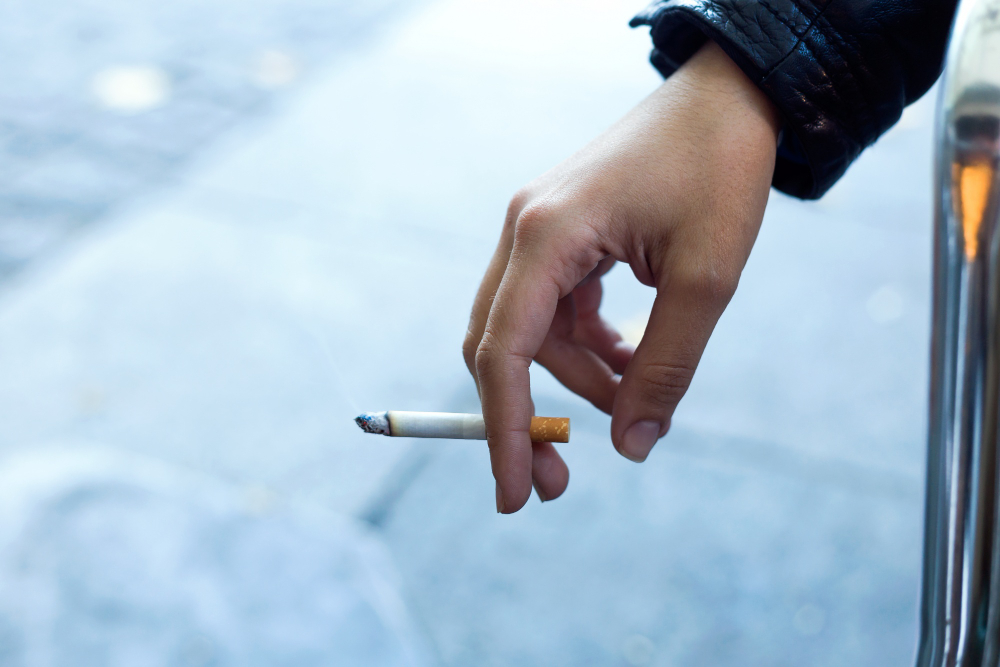
Solutions & Prevention
- Avoid smoking in your car altogether, particularly during summer when interiors can become highly flammable.
- Keep a secure ashtray in your car if smoking is unavoidable, and ensure cigarette butts are extinguished properly.
- Vacuum your car regularly to clear out any flammable debris.
7. Oil Leaks
Dripping oil on hot surfaces like the exhaust system can ignite, especially when ignored for long periods. Oil leaks also damage other components, increasing fire risks.

Solutions & Prevention
- Check for oil spots under your car regularly and inspect your engine bay for visible leaks.
- Address oil leaks immediately by consulting a mechanic—don’t delay repairs, no matter how minor the leak may seem.
- Ensure oil changes are done on time and always use the correct grade of oil recommended for your vehicle.
How to Stay Ahead of Fire Risks
Preventing car fires involves proactive maintenance, safe habits, and avoiding risky behaviors. Regular inspections, removing flammable items from your car, and relying on licensed professionals for repairs can significantly reduce fire risks. By implementing the solutions outlined above, you’ll not only protect your vehicle but also ensure the safety of everyone traveling with you. Small steps can make a big difference in preventing major incidents.
Video: How a Water Bottle Can Cause a Fire In Your Car
Watch this YouTube video demonstrates how a water bottle left in a car under direct sunlight can act as a magnifying lens, potentially starting a fire. It highlights the science behind this risk and offers safety tips.
Summary
Car fires in the UAE, though rare, can lead to serious damage and safety risks if not addressed. Key causes include electrical malfunctions, engine overheating, fuel and oil leaks, neglected maintenance, smoking inside vehicles, and even leaving water bottles in hot cars. Preventive measures involve regular vehicle inspections, timely repairs, using licensed professionals for modifications, and addressing warning signs like unusual smells or leaks promptly. Additionally, avoiding risky behaviors such as smoking in cars or leaving flammable items in direct sunlight plays a crucial role in minimizing fire risks and ensuring safety on the road.